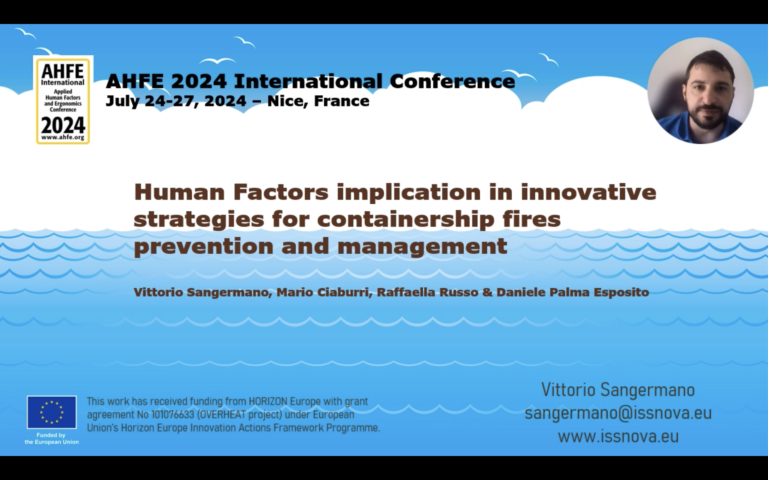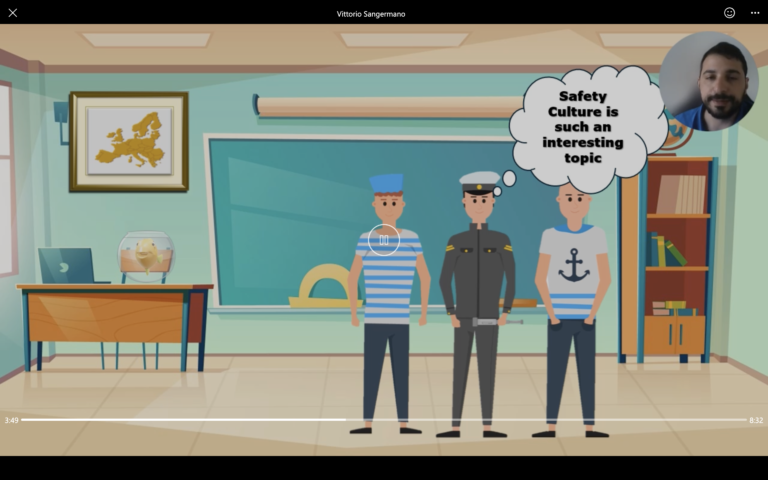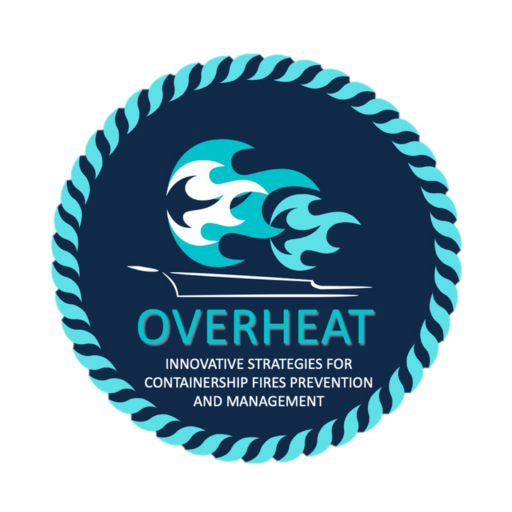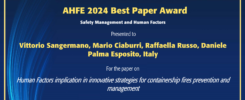The AHFE2024 Conference recently showcased the Overheat Project. Presented by Vittorio Sangermano from ISSNOVA, “Human Factors Implication in Innovative Strategies for Containership Fires Prevention and Management.” Presentation highlighted the critical need for innovative approaches to enhance safety in maritime transport, particularly concerning the increasing risks of fires aboard containerships.
Background and Context
Maritime transport is a cornerstone of global trade, handling approximately 90% of the world’s goods. However, the design of modern containerships has not evolved significantly from that of smaller vessels, leading to heightened safety concerns. Fires on containerships pose severe threats, resulting in significant human and cargo losses and detrimental effects on coastal and marine environments. The presentation emphasized that many seafarers often underestimate these risks due to inadequate training and confusion regarding emergency procedures, which can escalate into catastrophic situations.
The presentation underscored the urgent need for innovative safety measures in the maritime industry, particularly concerning fire management on containerships, that integrate human factors and advanced technology. Therefore, the Overheat Project aims to significantly enhance the safety culture and operational readiness of seafarers, ultimately contributing to safer maritime transport practices thought innovative strategies for the prevention and management of containership fires.

Its objectives include improving fire prevention, detection, and response capabilities while emphasizing the importance of Safety Culture (SC) among seafarers. The project will implement a cognitive model to assess and enhance safety culture onboard, develop a Digital Solution (DS) aimed at improving situational awareness during fire incidents to facilitate timely reactions to emergencies, minimizing the risk of cascading effects, and will be tested by real-world demonstrations in collaboration with maritime professionals in five key European scenarios: Genova (Italy), Brest (France), Valencia (Spain), Bremen (Germany), and Gdynia (Poland).

Key components of the Innovations
– Automated Fire Prevention Systems: Utilizing IoT sensors and drones for early fire detection and monitoring.
– Training Programs: Implementing novel training for seafarers based on project findings to enhance their preparedness for fire management.
– Real-World Testing: Validation activities will occur in simulated environments in Italy and France, followed by demonstrations in real maritime settings

